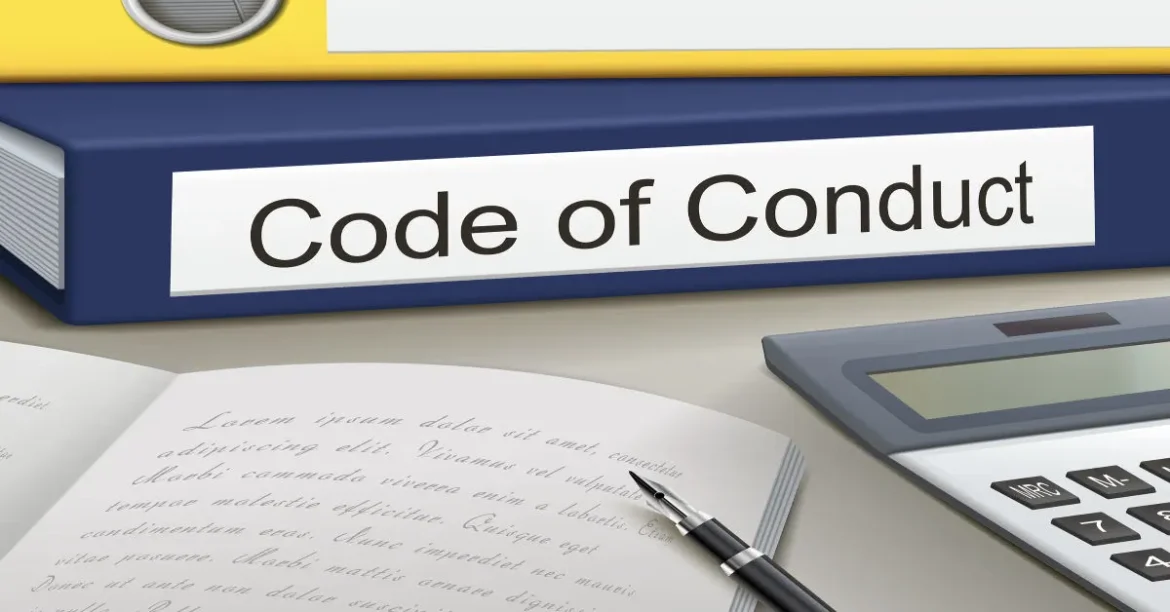Key Takeaway
- India Lacks a Finalised Code—But Change Is Coming
As of May 2025, patent agents in India operate without a formal code of conduct, but a binding framework is in development following a 2024 Delhi High Court directive1. - Judicial and Administrative Bodies Are Demanding Accountability
Landmark rulings like Saurav Chaudhary v. Union of India show that courts and the CGPDTM are enforcing ethical duties even in the absence of codified rules. - Professional Ethics Are No Longer Optional
Patent agents are expected to uphold standards like due diligence, client confidentiality, and conflict-of-interest avoidance, aligned with both judicial expectations and international norms. - India’s Draft Code Reflects Global Alignment
The forthcoming code is expected to mirror best practices from jurisdictions like Australia, the EU, and the UK, paving the way for enhanced professionalism and client protection in the IP ecosystem. - Lack of Enforcement Infrastructure Remains a Challenge
Without a dedicated disciplinary authority like the Bar Council for lawyers or IPReg in the UK, ensuring compliance remains a structural gap, highlighting the need for a regulatory overhaul.
In India, the conduct of patent attorneys, officially known as patent agents under the Patents Act, 1970, is primarily governed by that Act and the Patents Rules, 2003; however, no finalised, comprehensive code of conduct has been formally prescribed. A strong institutional push in 2024 and 2025 has begun closing this gap, guided by judicial insight and international standards. This article provides an in-depth overview of the current rules, recent amendments, ethical norms, and global benchmarks that shape the professional conduct of patent attorneys in India.
Key Takeaway:
These provisions establish a baseline for professional conduct but lack detailed guidelines on ethical obligations, such as client confidentiality, conflict of interest, or due diligence.
Legal Framework and Current Status in India
India’s patent agent ecosystem is currently governed by the Patents Act, 1970 and the Patents Rules, 2003, but lacks a dedicated ethical framework and institutional mechanisms for accountability.
Governing Legislation
The Patents Act, 1970 and the Patents Rules, 2003, establish the foundational legal framework for patent agents in India, defining their eligibility, registration process, and procedural responsibilities. While these provisions outline who may act as a patent agent and what they are authorized to do, they stop short of prescribing ethical standards related to client confidentiality, conflict of interest, malpractice, or professional diligence—areas that are critical in practice.
Institutional Gaps
Despite their growing role in India’s innovation ecosystem, patent agents currently operate in a regulatory vacuum when it comes to professional accountability. There is no dedicated grievance redressal mechanism, disciplinary body, or codified code of ethics to address misconduct or negligence. This institutional gap becomes particularly problematic as clients increasingly depend on patent agents to manage complex and high-stakes intellectual property filings, often without parallel legal support. The result is a significant mismatch between responsibility and oversight.
Landmark Case Law: Saurav Chaudhary v. Union of India (2024:DHC:4946)
In a landmark ruling that could reshape the professional responsibilities of intellectual property (IP) practitioners in India, the Delhi High Court in Saurav Chaudhary v. Union of India2 (2024:DHC:4946) addressed the urgent need for a formal Code of Conduct for registered patent and trademark agents. The case was initiated after a patent applicant’s filing was deemed abandoned due to the negligence of the law firm representing them—highlighting a glaring accountability gap in India’s patent system.
Why the Case Matters
The case marked a critical judicial intervention into the professional regulation of patent agents. In the absence of a codified conduct framework under the Patents Act, 1970, or the Patents Rules, 2003, the Court recognized that the current regime provides no guidance on what constitutes professional misconduct, negligence, or breach of fiduciary duty by patent agents.
The Court took particular note of the fiduciary nature of a patent agent’s role. It held that applicants, especially individual inventors or small entities, often rely heavily on agents to navigate the technical and procedural intricacies of the Indian Patent Office (IPO). Expecting such clients to constantly track application statuses on the IPO portal was deemed unreasonable, particularly in cases involving abandonment due to procedural lapses by the agent.
Judicial Directives
In its order, the Court explicitly directed the Controller General of Patents, Designs and Trade Marks (CGPDTM) to initiate the formulation of a comprehensive Code of Conduct for patent and trademark agents. The judgment stressed that the professional responsibilities of IP agents must not fall below the standards expected of legal practitioners. This includes obligations of diligence, communication, confidentiality, and conflict-of-interest avoidance.
Key Observations from the Bench:
- Patent agents hold a fiduciary position and are obligated to act in the best interests of their clients.
- Applicants should not bear the burden of micromanaging their application status on the online portal.
- The lack of defined ethical boundaries or enforcement mechanisms leaves both the agent and applicant vulnerable.
- The Patents Act 1970, does not currently articulate what constitutes “professional misconduct” or “negligence” for patent agents, necessitating immediate regulatory reform.
Broader Implications
The ruling sets the stage for the formalisation of ethical norms in the profession. It signals to both the regulatory authorities and the IP legal community that professional negligence is not merely an ethical lapse—it carries legal and reputational consequences. The decision reflects a broader movement toward aligning India’s IP professional standards with global best practices and increasing client protection and service accountability.
The CGPDTM has since begun drafting the Code of Conduct, expected to include provisions on timely client communication, accountability for procedural lapses, and ethical handling of patent filings. However, as of May 2025, the code remains under development and has not yet been formally adopted.
Key Takeaway:
The Delhi High Court has made it clear: the ethical conduct of patent agents is a matter of legal accountability. With professional negligence leading to real-world consequences—like abandoned applications and loss of IP rights—the need for a binding code is no longer optional but imperative.
Key Principles and Ethical Obligations
Patent agents are expected to uphold core ethical principles that ensure professional integrity, client trust, and accountability in their practice.
Confidentiality and client privilege:
Patent agents must safeguard all confidential information and intellectual disclosures shared by clients, ensuring that such data is never misused or disclosed without explicit consent.
Avoiding conflicts of interest:
Agents should refrain from representing clients whose interests are directly adverse to one another and must disclose any potential conflicts that could impair their impartiality or loyalty.
Duty of competence, timeliness, and due diligence:
A patent agent is expected to possess the technical and legal expertise required to competently handle patent matters and to act with diligence and promptness at every stage of representation.
Transparent communication and honesty in representations:
Clients must be kept informed of critical developments, and all representations made to clients, the Patent Office, or third parties must be accurate, clear, and free from misleading information.
Avoiding misleading advertising:
Patent agents must ensure that promotional materials or advertisements about their qualifications, services, or outcomes are truthful, verifiable, and not exaggerated or deceptive.
Respect for the judiciary and fair procedural conduct:
Agents are expected to demonstrate integrity in all interactions with tribunals or authorities, adhere to procedural rules, and avoid any conduct that undermines the dignity or fairness of the legal process.
While awaiting a formalised code, patent agents in India are expected to adhere to general
professional ethics and standards derived from the Patents Act, judicial precedents, and
practices in the IP ecosystem.
Practical Implications for Patent Agents
These ethical expectations translate into real-world responsibilities that directly impact how patent agents train, communicate, and manage professional risk.
Training and Certification:
Regular ethics and procedural training ensure agents remain compliant with evolving legal standards and maintain the competency required for high-quality service delivery.
Risk Mitigation:
Adopting strong internal controls, tracking systems, and case management protocols can prevent costly errors like missed deadlines or procedural lapses.
Client Communication:
Establishing clear engagement protocols and maintaining regular updates builds trust, reduces disputes, and helps manage client expectations effectively.
Professional Liability:
In the absence of a formal indemnity regime, patent agents must recognize that professional negligence can lead to legal liability, reputational damage, and loss of registration.
Comparison with International Standards
India’s evolving code of conduct for patent agents draws inspiration from international frameworks that establish high benchmarks for ethical, transparent, and client-focused IP practices.
Australia & New Zealand – TTIP Code of Conduct (2018)
- Governed by the Trans-Tasman IP Attorneys Board (TTIP)3.
- Enforces high standards of professional skill, due care, and timeliness.
- Prioritizes client interests over commercial or group affiliations.
- Requires disclosure of registration status and any potential conflicts of interest.
- Provides clear complaint resolution mechanisms for clients.
United Kingdom – IPReg Rules of Conduct (2022)
- Overseen by the Intellectual Property Regulation Board (IPReg)4.
- Mandates Continuing Professional Development (CPD) to ensure up-to-date competence.
- Requires transparent communication regarding fees, services, and risks.
- Provides for client-friendly complaint processes and regulatory oversight.
- Holds attorneys to high standards of integrity, impartiality, and responsiveness.
European Union – EPO Code of Conduct
- Enforced through the European Patent Office (EPO) and its formalized ethical rules5.
- Integrates ethical compliance into examination guidelines and practice norms.
- Supports ethical consistency in cross-border patent practice across EU member states.
- Emphasizes respect for legal obligations, client rights, and professional reputation.
- Encourages peer review and clear disciplinary procedures for misconduct.
Key Lessons for India’s Draft Code
India’s draft code aims to incorporate global best practices to strengthen ethical accountability, client trust, and regulatory clarity in patent agent conduct.
- India’s draft code is expected to draw heavily from these models in structure and substance.
- Focus areas include:
- Accountability for delays and malpractice.
- Transparency in client communication and billing.
- Mandatory ethics training and disclosure obligations.
- These elements aim to align Indian standards with global norms and improve public trust in the IP system.
Key Takeaway:
The Indian code must balance enforceability with flexibility—adopting lessons from seasoned global jurisdictions. India is moving toward global norms—bringing professionalism, trust, and enforceability to the IP services sector.
Final Thoughts
As of May 2025, India lacks a finalised Code of Conduct for patent attorneys, but legal, judicial, and regulatory forces are actively shaping it. The Delhi High Court’s 2024 ruling marks a turning point—bringing ethics to the forefront of patent practice. The forthcoming code is expected to enhance professional accountability, align with global frameworks, and provide structured recourse mechanisms. Patent agents must now operate not just as legal representatives but as stewards of professional excellence.
FAQ
1. What is the Code of Conduct for patent attorneys, and why is it important?
It is a set of ethical and professional standards that guide patent attorneys, ensuring accountability, client trust, and integrity in practice.
2. What are the key principles outlined in the Patent Attorney Code of Conduct?
Core principles include confidentiality, conflict avoidance, competence, transparency, and respect for legal procedures.
3. How do the recent updates to the Code of Conduct affect patent attorneys’ practices?
They introduce clearer guidelines on malpractice, fee disclosures, and client communication, raising the bar for ethical compliance.
4. What are the consequences for a patent attorney if they violate the Code of Conduct?
Violations can lead to disciplinary action, suspension, removal from the register, or legal liability, depending on severity.
5. What is the role of transparency and honesty in the Patent Attorney Code of Conduct?
Transparency and honesty are essential for informed client decisions, fair billing, and maintaining the integrity of the profession.



